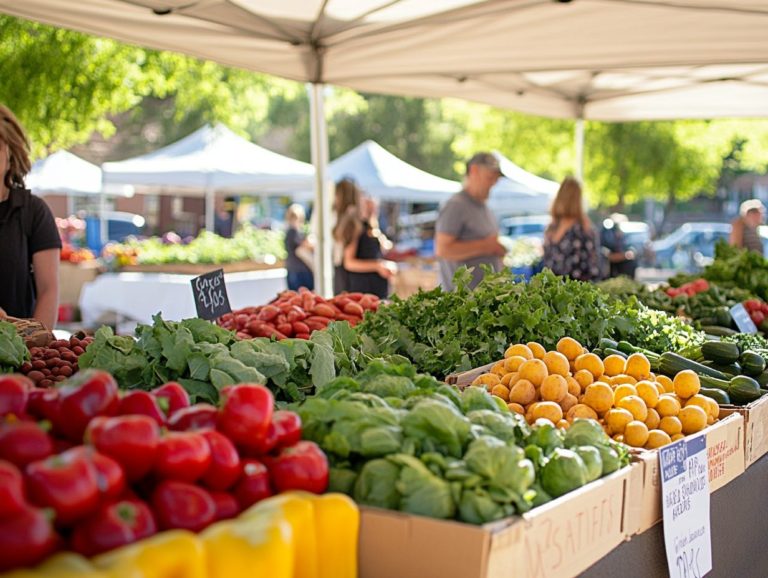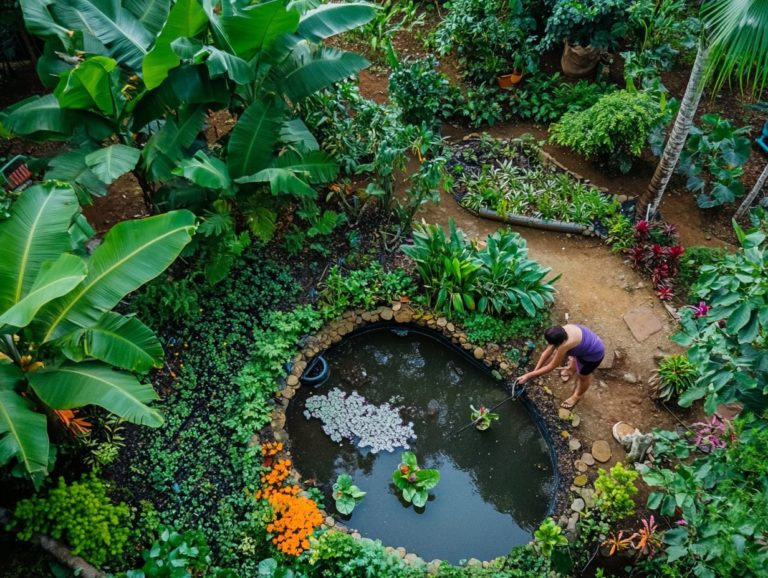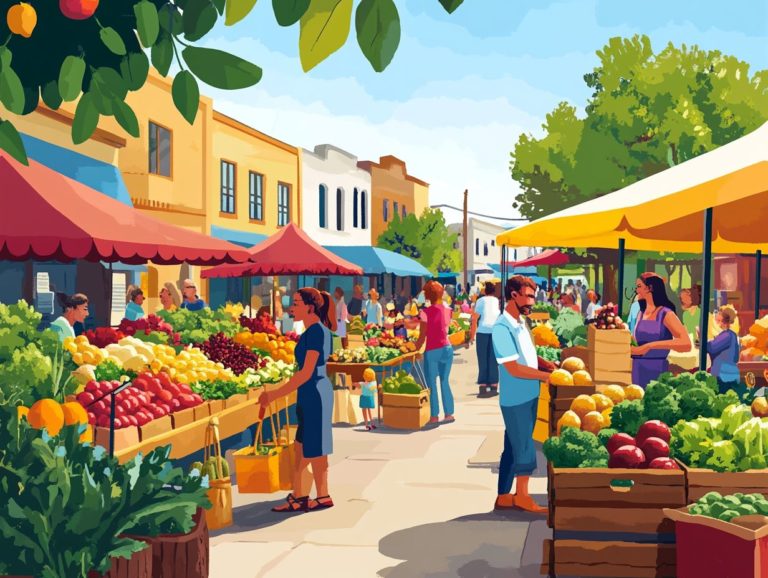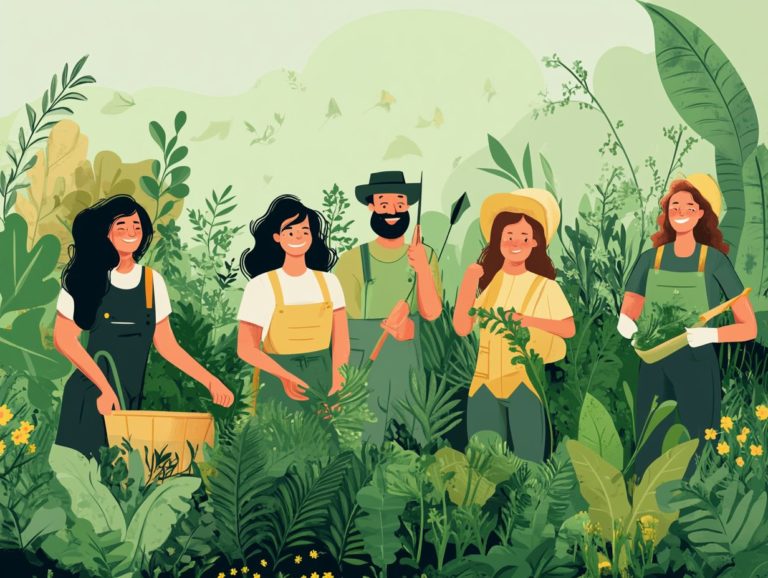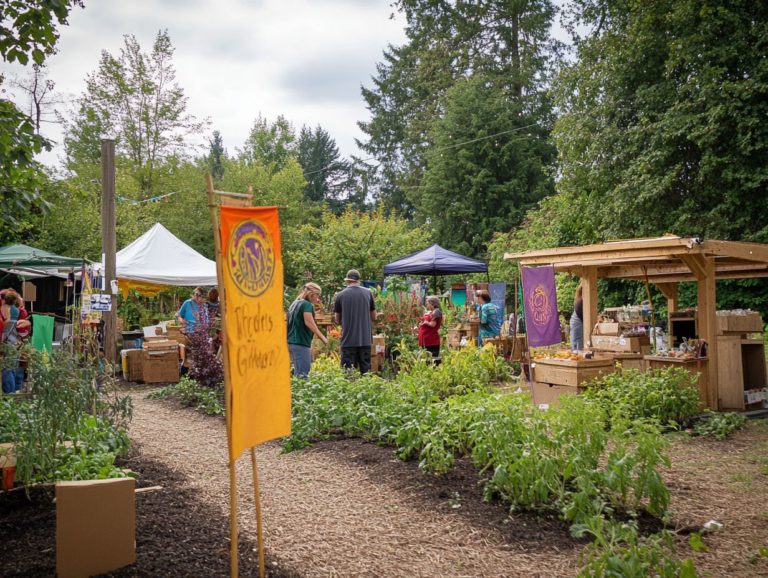14. Finding Local Permaculture Experts and Mentors
Permaculture is a way of living sustainably that harmonizes with the natural world.
Whether you re a novice ready to plant your first seeds or an adept practitioner seeking to enhance your expertise, engaging with local permaculture experts and mentors can prove invaluable. Don t miss out on the chance to transform your community!
This article delves into the essence of permaculture, the advantages of mentorship, ways to discover local resources, critical questions to ask, and strategies for cultivating meaningful relationships with your mentors.
Immerse yourself and uncover how to elevate your permaculture journey!
Contents
- Key Takeaways:
- Understanding Permaculture
- Benefits of Connecting with Local Permaculture Experts and Mentors
- Where to Find Local Permaculture Experts and Mentors
- Questions to Ask When Connecting with Experts and Mentors
- Building a Relationship with Your Permaculture Mentor
- Frequently Asked Questions
- 1. How can I find local permaculture experts and mentors?
- 2. What qualifications should I look for in a permaculture expert or mentor?
- 3. Can I find permaculture experts and mentors online?
- 4. How can I ensure that the permaculture expert or mentor I choose is credible?
- 5. Are there any benefits to finding a local permaculture expert or mentor?
- 6. How much should I expect to pay for a permaculture expert or mentor?
Key Takeaways:
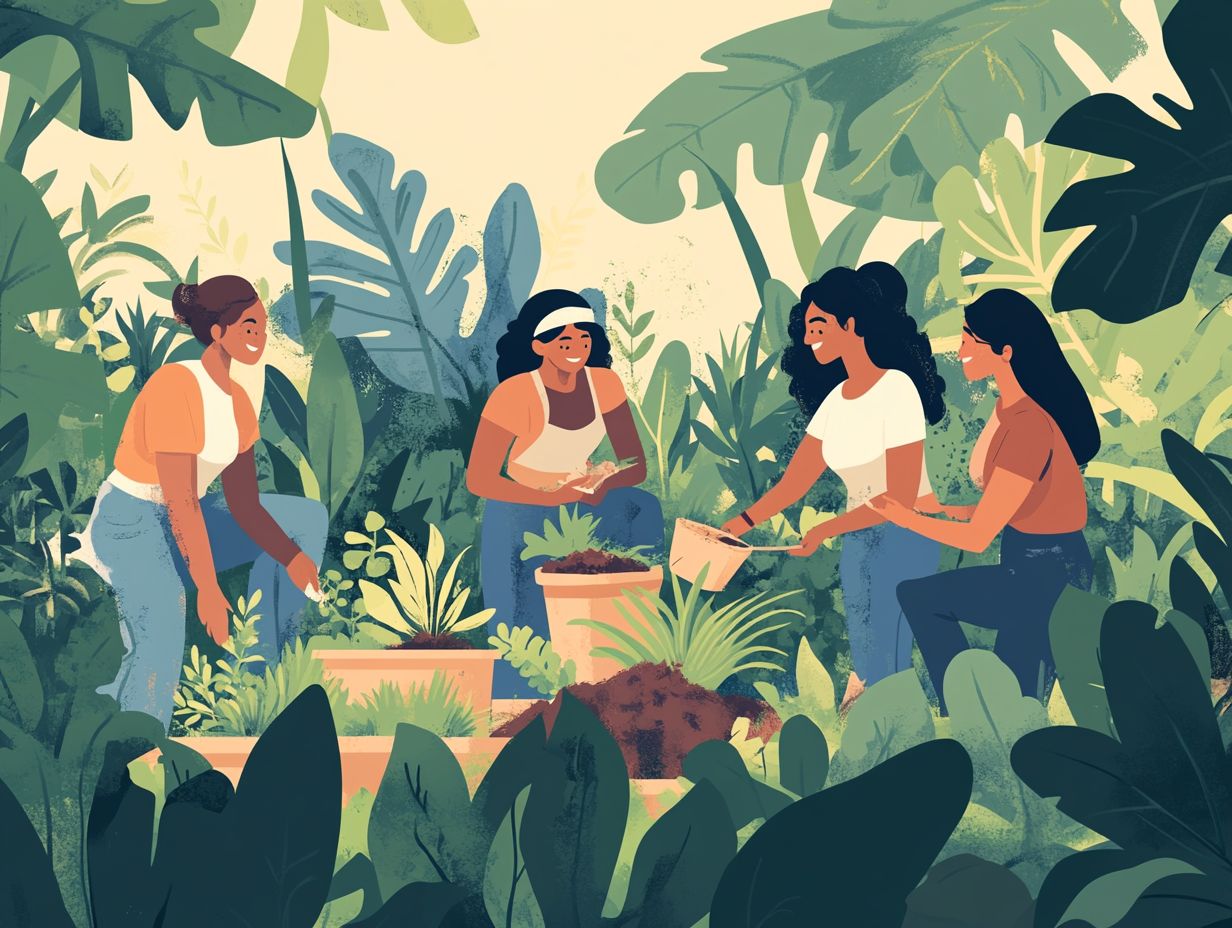
- Connect with local permaculture experts and mentors to learn from experienced practitioners and build a supportive community.
- Utilize online resources and directories, as well as local permaculture groups and events, to find mentors in your area.
- Be mindful of important considerations and actively work on building a strong mentor-mentee relationship to make the most out of your mentorship experience.
Understanding Permaculture
Understanding permaculture requires exploration of the foundational principles set forth by pioneers such as Bill Mollison and David Holmgren. They emphasized the necessity for ecological systems that allow communities to live sustainably while addressing urgent issues like environmental degradation and economic inequality.
This holistic design methodology weaves together resource management and community engagement, fostering resilient communities ready to flourish even in the face of challenges like climate change and water scarcity.
What is Permaculture?
Permaculture is a sustainable design system that creates agricultural and social frameworks in harmony with the environment, emphasizing ecological principles and regenerative farming techniques.
Emerging in the 1970s, permaculture combines concepts from various fields like ecology and traditional practices to cultivate self-sufficient ecosystems. By highlighting the interconnectedness of natural systems, it empowers you to enhance biodiversity and optimize resource use, ultimately fostering resilient communities.
The core principles encourage designing landscapes that yield food while restoring soil health and boosting local biodiversity, significantly improving food security. As communities confront ongoing environmental challenges, embracing these integrated approaches helps mitigate issues like pollution and climate change, paving the way for sustainable living practices.
Benefits of Connecting with Local Permaculture Experts and Mentors
Connecting with local permaculture experts opens up exciting opportunities. You’ll receive transformative education that equips you with the knowledge and skills needed to implement sustainable systems.
This guidance helps you tackle complex challenges and inspires grassroots change within your community. Embrace the chance to learn from those who have navigated the path of sustainability, and watch your efforts create a meaningful impact.
Learning from Experienced Practitioners
Learning from experienced practitioners in permaculture offers invaluable mentorship, allowing you to gain hands-on experience and develop a diverse skill set essential for implementing sustainable practices.
This mentorship is key in navigating the complexities of ecological design and land stewardship. Shadowing seasoned permaculturists during site assessments uncovers insights that simply can’t be found in textbooks. Discussing real-world challenges like soil health or water management shows how theory translates into practical action.
Workshops led by knowledgeable educators create a space to learn practical skills like composting or companion planting through interactive methods. These immersive experiences boost your confidence and help you build a supportive community, reinforcing that sustainable living is a shared journey.
Networking and Community Building

Networking within the permaculture community helps you build strong relationships. These relationships empower you to meet local needs and spark grassroots movements for sustainable living.
Your connections allow you to share knowledge and resources. Engaging with local groups and attending events like workshops and seed exchanges is essential.
By participating in these gatherings, you not only expand your skill set but also build a supportive network that nurtures innovation and resilience.
This collaborative spirit is essential for tackling shared challenges, from food security to the variety of different plants and animals. Your involvement enriches the community’s collective efforts toward creating a more sustainable future.
Where to Find Local Permaculture Experts and Mentors
You can discover local permaculture experts and mentors through various channels, including online resources and regional permaculture groups. Additionally, check out this guide on how to find local permaculture resources near you and community action initiatives dedicated to fostering sustainable living.
Exploring these avenues can connect you with knowledgeable individuals who share your passion for sustainable practices.
Online Resources and Directories
Online resources and directories are invaluable tools as you seek out permaculture experts and mentors. They grant you effortless access to a wealth of information and opportunities, such as connecting with local permaculture groups online, to build community.
These platforms function as essential hubs where you can explore directories listing local permaculture practitioners, engage in lively forums dedicated to sustainable practices, and connect with educational resources such as online courses and webinars. Websites like Permaculture Global and local permaculture associations provide detailed member listings, while social media groups and networks allow for direct engagement.
By leveraging these resources, you not only enhance your knowledge but also foster connections, collaborate on projects, and share experiences. All of this enriches the local permaculture movement and bolsters community efforts toward sustainability.
Local Permaculture Groups and Events
Local permaculture groups and events are essential platforms for you to network, connecting with like-minded individuals and experts in a collaborative atmosphere.
These gatherings, whether they’re community garden workshops or permaculture design courses, provide you with invaluable resources on sustainable living. You ll gain hands-on experience while sharing knowledge about eco-friendly practices, fostering a sense of belonging and a shared purpose among participants.
For example, the local permaculture network organizes monthly meet-ups where you can discuss innovative techniques and tackle local challenges. Events like the annual Permaculture Festival not only celebrate this lifestyle but also create opportunities for partnerships and collaboration among residents, artisans, and agricultural professionals eager to enhance sustainability efforts.
Ultimately, these initiatives empower you and your community by building stronger connections and advancing environmental education.
Questions to Ask When Connecting with Experts and Mentors
When you engage with permaculture experts and mentors, asking the right questions is essential. This approach enhances your mentorship experience and ensures it aligns seamlessly with your educational aspirations and the needs of your community.
Important Considerations
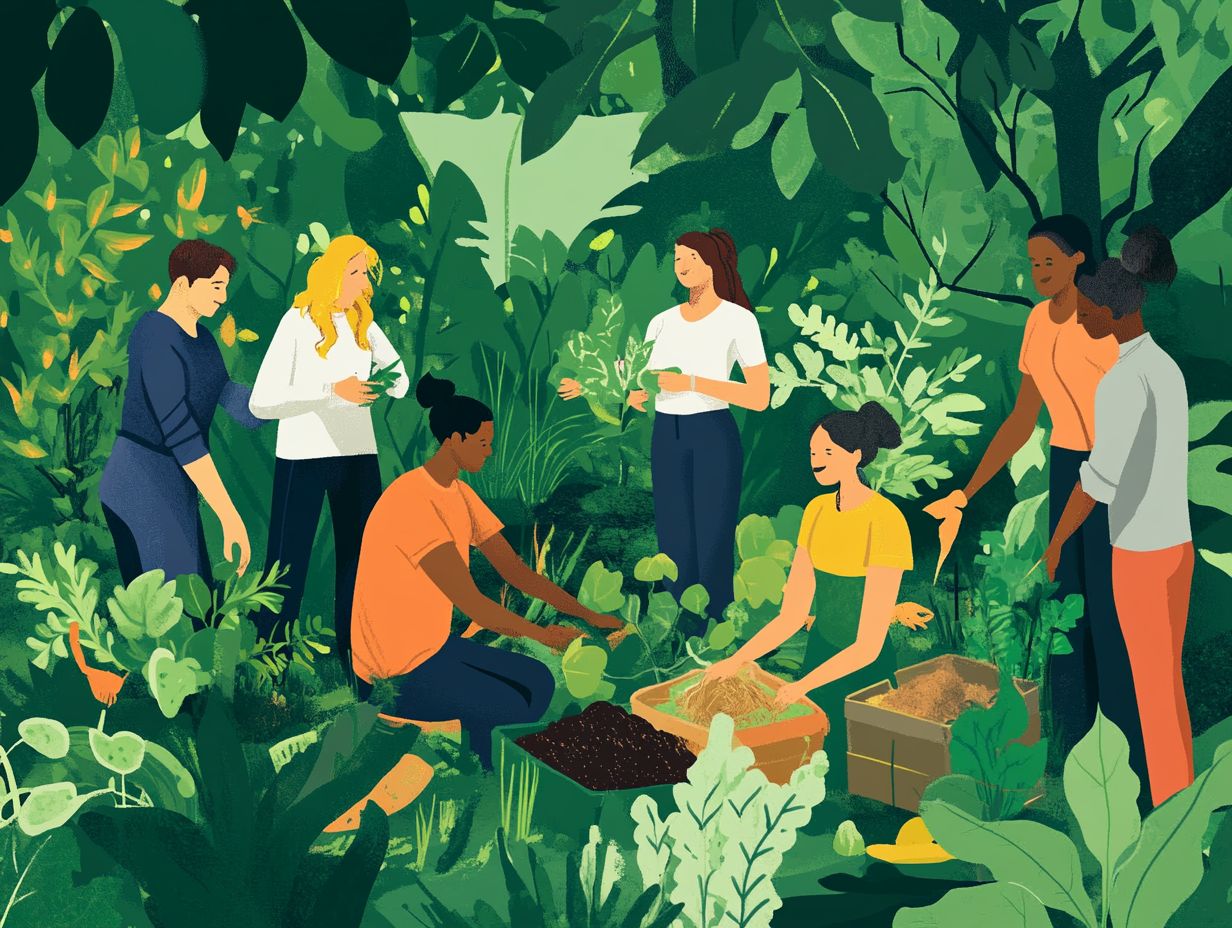
Understanding the key factors in mentorship can elevate your permaculture education. It also enhances community action initiatives.
As you embark on your journey to find a mentor, prioritize aligning your personal values and philosophies with those of your potential mentor. Assess their area of expertise to ensure they have relevant knowledge and experience in specific permaculture practices.
Establishing shared goals can lead to a rewarding partnership. This allows both you and your mentor to grow and innovate within your fields. Such an approach creates an exciting space for learning together, essential for nurturing sustainable practices and building community resilience in your permaculture projects.
Building a Relationship with Your Permaculture Mentor
Cultivating a robust relationship with your permaculture mentor is vital for unlocking the full potential of mentorship. This connection offers personalized guidance and enriching collaborative learning.
Tips for Nurturing a Mentor-Mentee Relationship
Nurturing this relationship requires your active engagement, open communication, and a genuine commitment to mutual growth. Focus on sustainable systems and ecological principles within the transformative education framework of permaculture.
Establish regular check-ins that embrace design thinking and collaborative solutions. These moments allow both of you to reflect on progress and tackle challenges. Think of these meetings as opportunities to celebrate your achievements, such as developing hands-on experience in practical farming techniques, creating an atmosphere that encourages growth.
Be open to feedback. This helps your mentor guide you better while allowing you to voice your needs and aspirations, especially regarding regenerative farming practices. By maintaining a commitment to shared goals, like food security and community revitalization, you nurture accountability and reinforce a sense of partnership. This ensures that you and your mentor work in harmony towards your common educational objectives.
Frequently Asked Questions
1. How can I find local permaculture experts and mentors?
Contact local permaculture groups to find mentors. They often have directories of experts in the area. Additionally, you can leverage local resources for permaculture by attending events and workshops to network and meet potential mentors.
2. What qualifications should I look for in a permaculture expert or mentor?
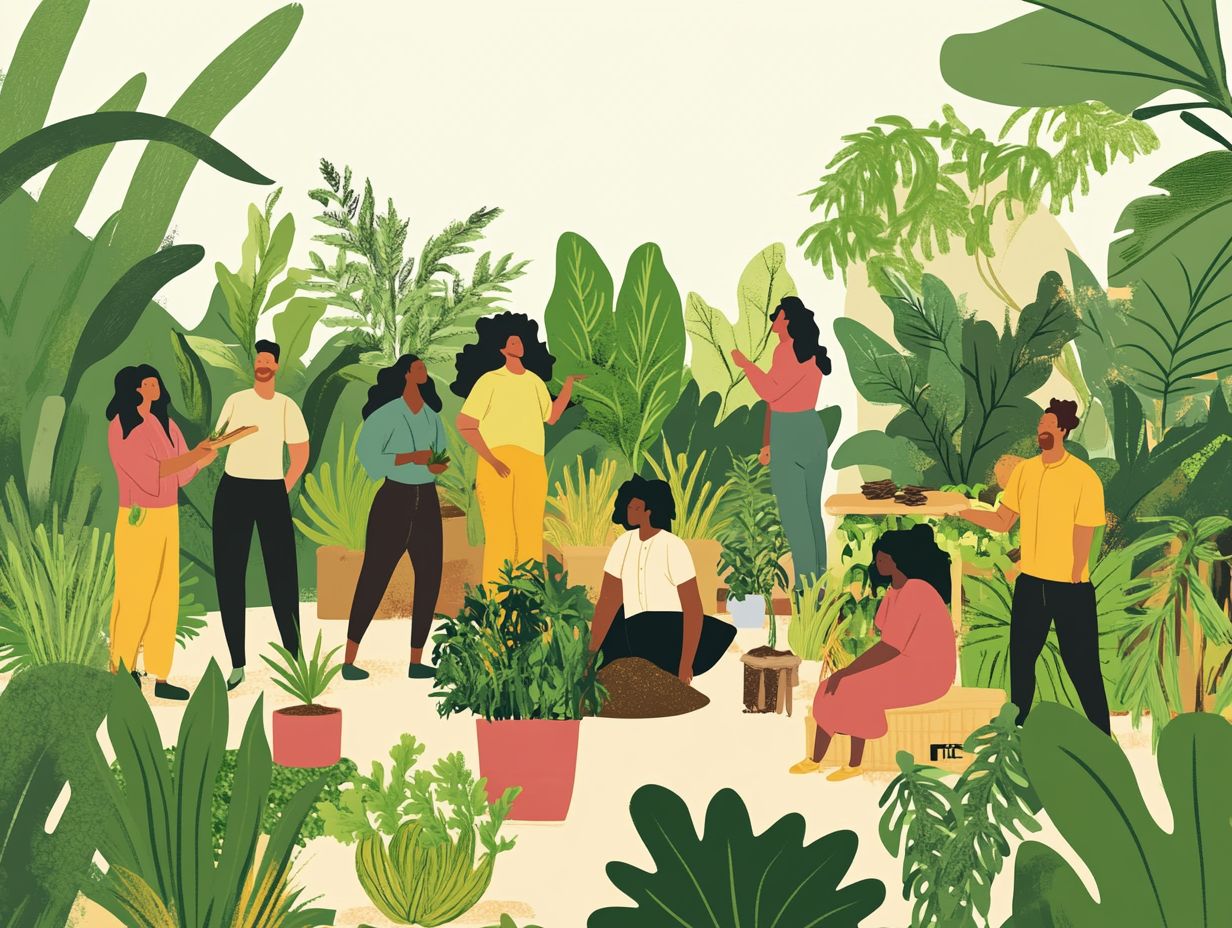
Look for individuals who have completed permaculture design courses and have hands-on experience. They should be skilled in implementing permaculture principles, including alternative pest management techniques. It’s also important to find someone who aligns with your personal values and goals.
3. Can I find permaculture experts and mentors online?
Yes! Numerous online platforms and forums connect you with permaculture experts and mentors. Check out educational centers and online courses related to permaculture education. You can also explore permaculture Facebook groups and forums, as well as webinars hosted by experienced practitioners.
4. How can I ensure that the permaculture expert or mentor I choose is credible?
Do your research! Ask for references or testimonials from previous clients. Ensure they have a background in transformative education and sustainable living. Look for certifications or affiliations with respected permaculture organizations. Additionally, reach out to others in the permaculture community for recommendations.
5. Are there any benefits to finding a local permaculture expert or mentor?
Yes! Imagine gaining valuable insights from a local expert. A mentor can provide personalized guidance tailored to your region and climate.
This support helps you navigate climate change and fosters community building. They can also connect you with local resources and practitioners, creating a stronger sense of community.
6. How much should I expect to pay for a permaculture expert or mentor?
The cost varies based on the expert s experience and services offered. Some may be involved in businesses focused on restoring ecosystems or provide one-on-one guidance.
While some experts offer volunteer or pro-bono services, others may charge for consultations or personalized design plans. It s essential to discuss and negotiate payment to find a mutually beneficial arrangement.
Don t wait! Connect with a local expert today to get started on your permaculture journey!

